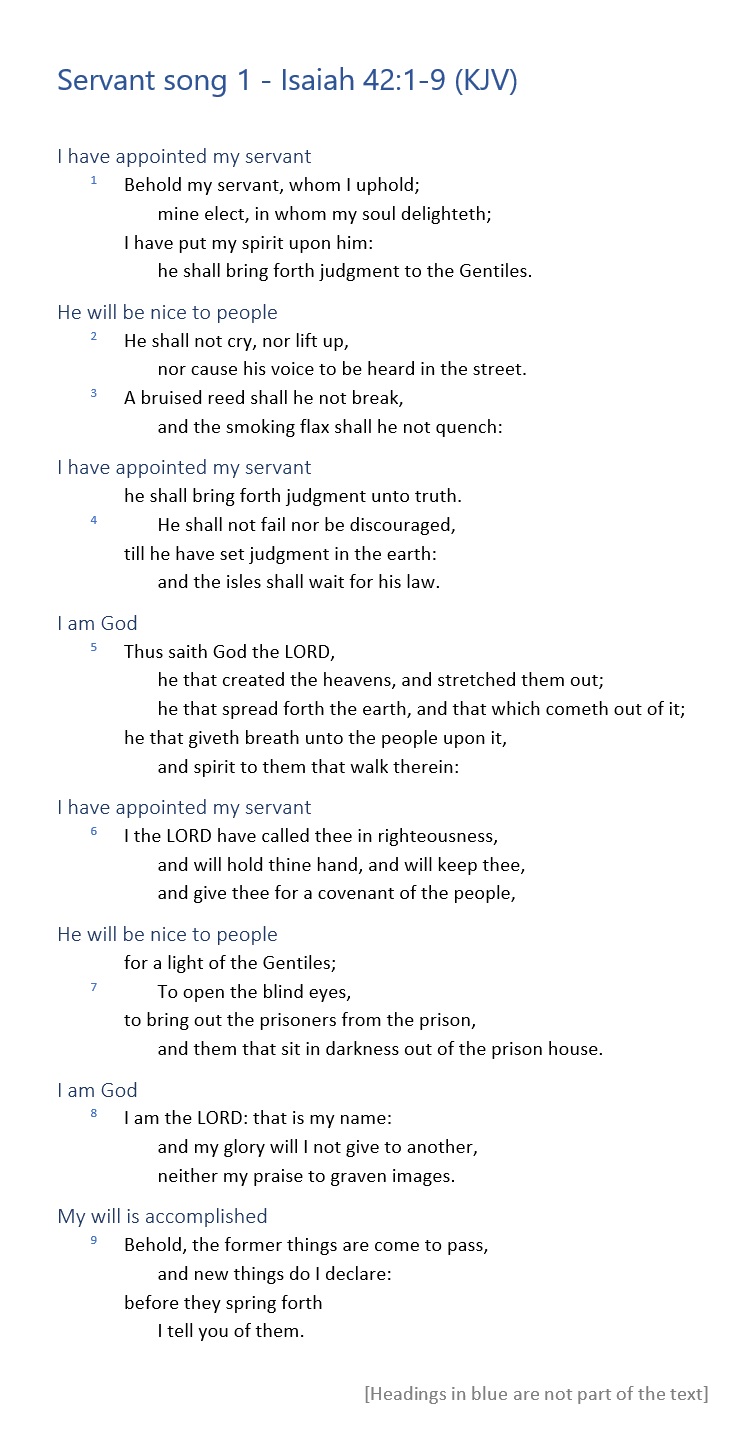In short
For the next 4 Wednesdays we will look at the four “servant songs” in the book of Isaiah. Three of them are undeniably prophecies of Jesus Christ, because the New Testament says so. The other one… might be.
This first song is about the servant freeing God’s people and bringing peace and justice. It implies that a new covenant is coming through the servant.
Why this first song is important
It is quoted in Matthew 12:18-20 as referring to Christ.
What is in this poem
Three main things:
- The grand appointing of the servant
- The servant’s mission (to be nice)
- The LORD’s authority
The appointing:
- “I have put my Spirit upon him” (v. 1)
- He will work hard, “till he has established justice in the earth” (v. 4)
- He will be “a covenant for the people” (v. 6)
The mission:
- He won’t force you to hear him (v. 2)
- He will be kind to the vulnerable (v. 3)
- He will help the blind to see* (v. 7)
- To free those who are bound (v. 7)
The LORD’s authority:
- He created the world (v. 5)
- He gives life to men (v. 5)
- He alone is God (v. 8)
This is the way I took it. I broke up the couplets differently than my Bible did (see picture). The end of verse 3 (“he shall bring forth judgment”) echoes the end of verse 1, so I put it in with verse 4. Similarly, I thought the end of verse 6 (“for a light…”) tied into the end of verse 7 (“sit in darkness”) and I grouped those together. I’m sure the editors of my Bible had their reasons for how they arranged it, too. That’s kind of the fun of dissecting Bible poetry, is trying to unearth the patterns inside.

Theology and doctrine
Lots of messianic language in this – covenant, justice/judgment, and the sense of authority given to this servant.
One thing that stands out in the KJV is the use of “Gentiles.” Other translations will say “nations.”
For the Old Testament to speak of “Gentiles” is a bit of an anachronism. I mean, the point is actually fairly accurate – Jesus, the messiah, was indeed a light to the Gentiles (meaning, the non-Jews) even while He was preaching to the Jews. But I think the idea would have been veiled to the early readers of Isaiah.
Footnote
* I take that figuratively, but of course Jesus did literally do this, too.

No responses yet